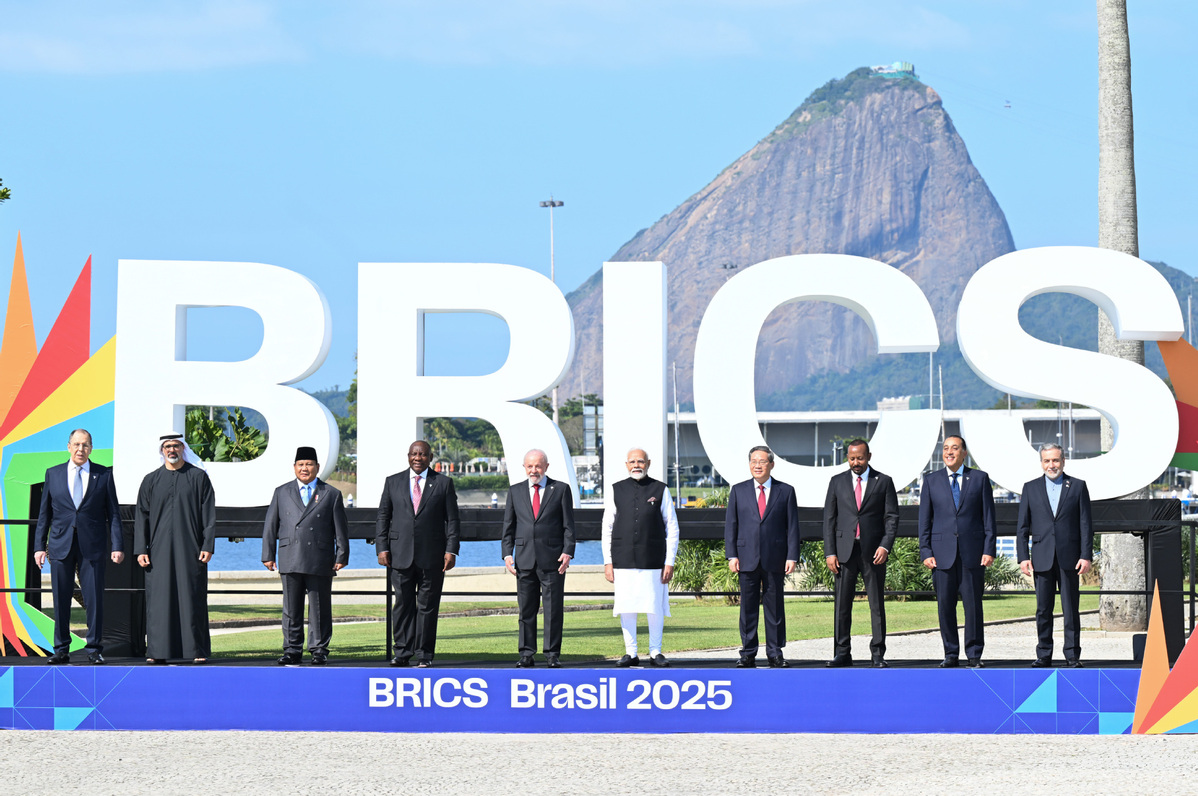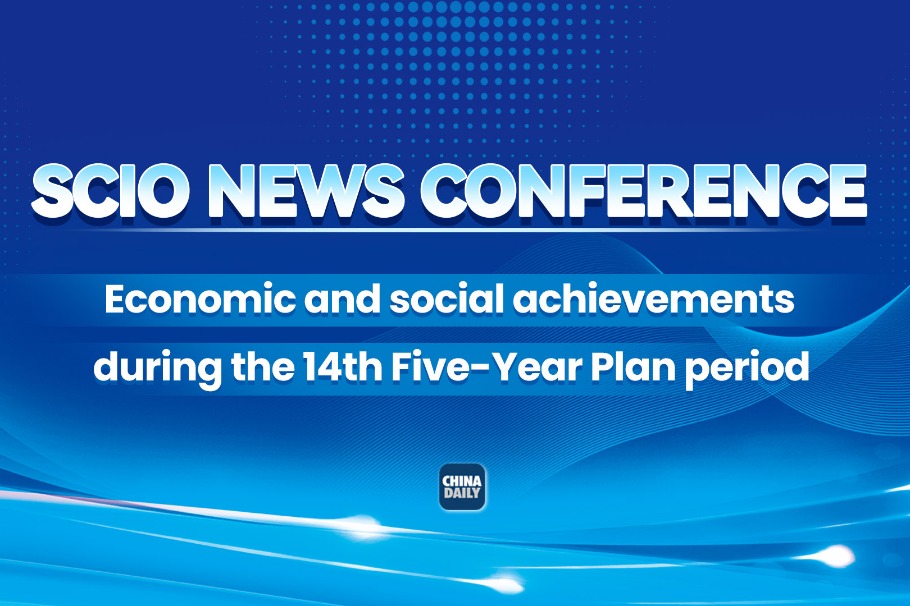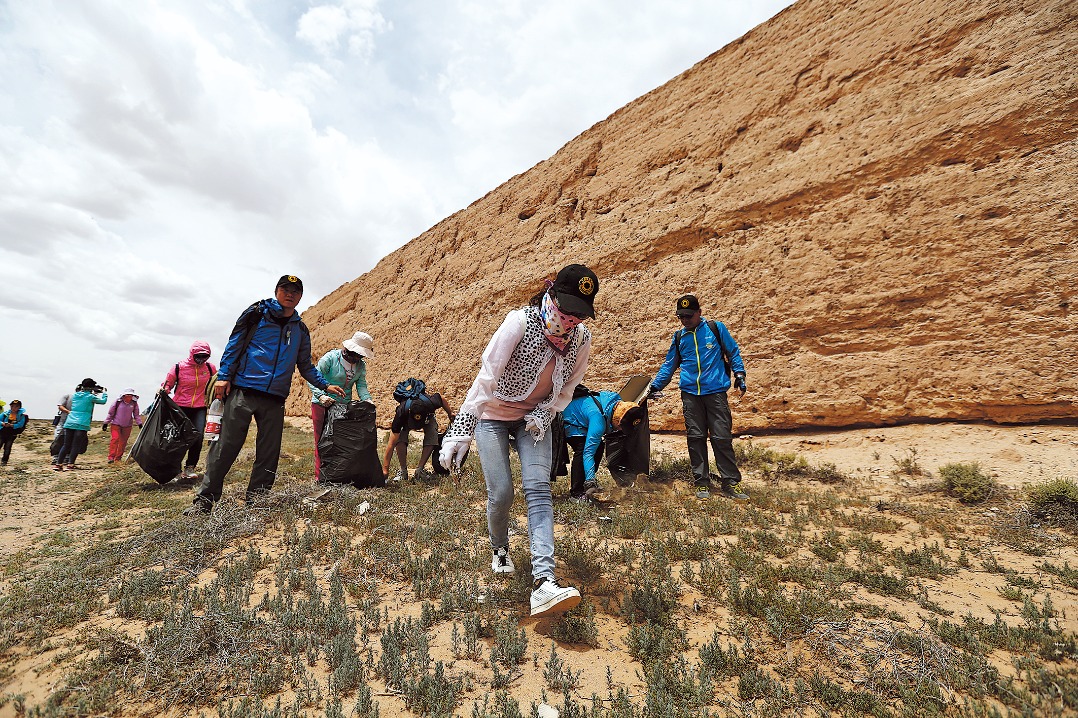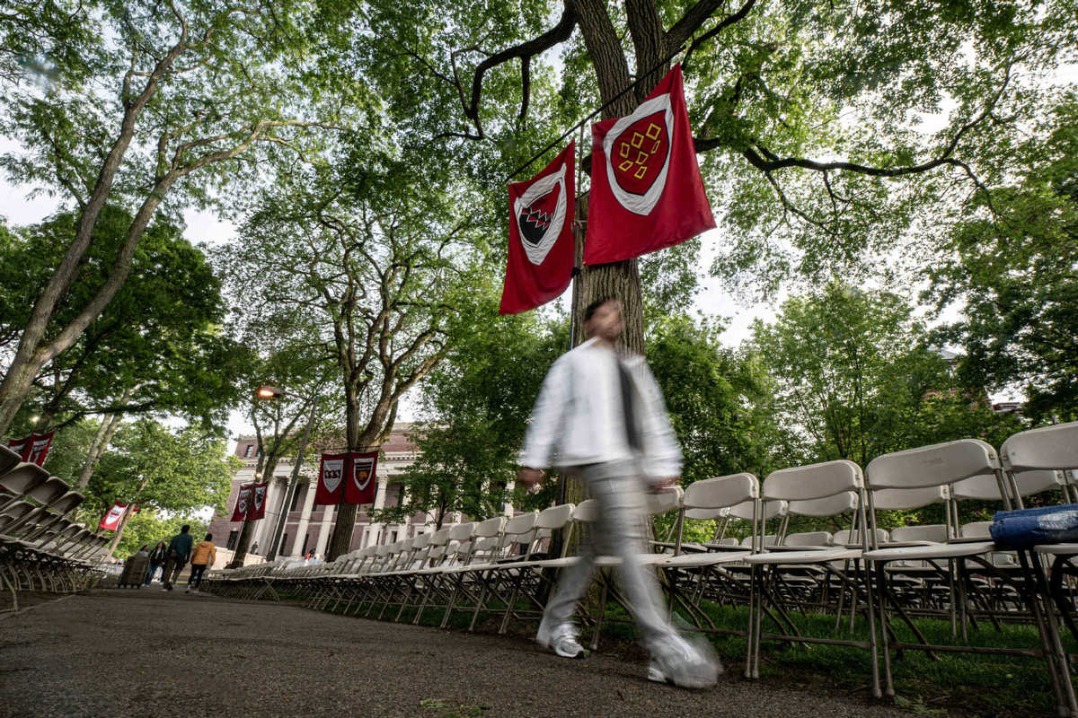BRICS calls for fairer, balanced economic order
Bloc's push draws fresh interest and support from Latin America: Analysts
By JIMENA ESTEBAN in Buenos Aires, Argentina | China Daily | Updated: 2025-07-09 09:15

BRICS' push to recalibrate global economic order that is fairer and more balanced at the 17th BRICS Summit in Rio de Janeiro has drawn fresh interest and support from Latin America in general.
This year's summit, held from Sunday to Monday, was defined by its emphasis on institutional reform, financial sovereignty and South-South collaboration. It offered Latin America tangible opportunities that could reshape the region's economic future.
The summit concluded with the adoption of a sweeping Joint Declaration covering 126 commitments across global governance, finance, climate, health, and technology. It outlined new efforts to combat hunger, advance climate action and expand access to emerging technologies.
Leaders endorsed Brazil's proposed Tropical Forests Forever Facility, a preservation fund designed to mobilize global financing for forest conservation. China's finance ministry pledged support during bilateral meetings, reinforcing BRICS' commitment to climate finance from within the Global South.
"In the face of the resurgence of protectionism, it is up to emerging nations to defend the multilateral trade regime and reform the international financial architecture," said Brazilian President Luiz Inacio Lula da Silva in his address to the BRICS Business Forum. Brazil positioned itself as a bridge between the bloc and its regional neighbors.
Lula's remarks underscored the shift from passive participation to active agenda-setting among developing nations, analysts said.
For the first time, a special annex in the final declaration called for "a collective global effort" to ensure artificial intelligence governance aligns with inclusive international norms and values, while improving equitable access to the technology.
"This year, there was priority given to diversity and dialogue in the multipolar world," said Omar Rilver Velasco Portillo, a consultant and professor at Universidad Mayor de San Andres, in Bolivia. "Brazil underscored the need for countries to become financially independent from the dollar and focus on local currencies."
The leaders of the 10 BRICS members, the original Brazil, Russia, India, China and South Africa were joined by new members Egypt, Ethiopia, Iran, the United Arab Emirates and Indonesia, and guest participants and observers from every region of the world.
Chile participated as a guest, while Cuba and Bolivia were designated earlier this year as partner countries. Venezuela has expressed interest in joining the bloc.
Other countries, such as Colombia and Uruguay, have joined the New Development Bank, the BRICS multilateral development bank. Still, that may represent a step toward greater participation.
Colombia is neither a member nor a partner yet, noted Felipe Campos, an economist and investment and strategy manager at Alianza Fiduciaria in Bogota, Colombia. Given Colombia's current limitations, "access to financing seems to be the best we can hope for now".
Different perspective
"If the BRICS manages to consolidate their own financial instruments, energy agreements or relevant trade agreements, they could begin to shape the global agenda from a different perspective," Campos said. "In that scenario, not being close to the bloc could mean less influence and less early access to new rules of the game."
Some countries in the region have been more proactive.
"Chile has been a visionary country in terms of foreign relations and, thus, has a fairly advanced relationship with at least a significant portion of the BRICS economies," said Renzo Burotto Pinochet, a member of Chile's Permanent Forum on Foreign Policy. "Attending the BRICS summit as a guest reflects Chile's continued tradition of being present in the most relevant international cooperation initiatives."
He said the bloc's emphasis on sovereignty, mutual benefit, and peaceful coexistence resonates with Latin America's diplomatic principles.
As BRICS carves out a more assertive role in shaping global norms, its appeal to the broader Global South is growing. Whether Latin America moves closer to BRICS will depend on the domestic priorities and geopolitical calculations of individual governments. But the bloc's expanding footprint now presents a viable alternative to traditional alliances. In Rio, that future came into clearer view.
BRICS unveiled new institutional tools designed to give emerging markets more options in development financing. "One of our key differences is that all members are equal, and every voice is heard," Dilma Rousseff, president of the New Development Bank, said at the bank's 10th annual meeting, which was held in Rio just before the BRICS Summit.
The bank also launched a guarantee fund aimed at reducing borrowing costs and attracting private capital for infrastructure and energy projects. This initiative is particularly relevant for Latin American economies seeking alternative financing without the conditionalities often tied to Western institutions.
The writer is a freelance journalist for China Daily.
























